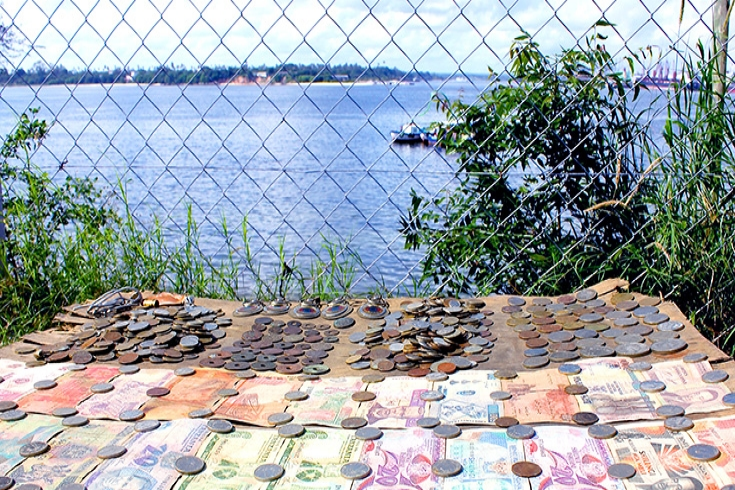Tanzania’s ambitious plans to lift its population out of poverty through infrastructure development will come unstuck if it does not set up an adequate tax collection system to pay for it, the World Bank has warned.
Shrinking foreign aid contributions, stagnant tax receipts and a fast growing population have led to a build-up of arrears with contractors and pension funds, meaning that the country’s remarkable growth and recent record of fiscal stability are at risk.
Tanzania has one of Africa’s best performing economies. Annual GDP growth there averaged 7.04% percent from 2002 until 2014–
The government should streamline a complex and inconsistent tax system, make it transparent, and use psychology to render tax evasion socially unacceptable, says a new report from the bank, released this month.Â
“Put simply, Tanzania must collect more taxes,” said Jacques Morisset, World Bank Group lead economist for Tanzania and main author of the report.Â
Tanzania has one of Africa’s best performing economies. Annual GDP growth there averaged 7.04% percent from 2002 until 2014.
On the back of that it has launched hugely ambitious building plans, including a $14bn standard gauge rail network, an $11bn seaport, and various property and urban infrastructure schemes.
But the country’s ability to fund more projects and service the loans for these ones are in doubt as it faces what the World Bank called a “deep change” in its finances in recent years.Â
Population pressure
Tanzania’s population stands at approximately 49 million and has seen rapid growth, with a rate of 2.8% as of 2014, compared with its neighbours Mozambique (2.45%) and Kenya (2.11%), according to the CIA World Factbook.

Image via The World Bank
Its population growth is even starker compared to developed countries such as the US (0.77%), Japan (0.13%) Russia (0.03%) and the UK (0.54%).
If this growth continues and Tanzania doesn’t bring in more taxes, its development goals can’t be met.
The report says that if, for instance, the country wants to boost secondary school registration to 60% by 2020, its annual secondary school budget will need to double if the cost of schooling stays constant.Â
Soured image
To date generous foreign aid has bolstered state coffers but this cash source is drying up amid a souring of the country’s governance image.Â
Tanzania fell from 92nd place to 119th in Transparency International’s Corruption Perceptions Index between 2006 and 2014. Last year a group of 12 international donors froze nearly $500m in general budget support after senior government officials were accused of stealing from the country’s central bank through spurious energy contracts.
Between 2001 and 2008 the flow of aid increased by 20% a year but has fallen by 5% since then, the report says.
Citizens have to trust that the tax they pay is not being wasted or stolen, so the government should publish collection and exemption data–
Tanzania is feeling the squeeze. Government expenditure grew annually by an average of 10% in the last decade, but now that growth has slowed to 3%.
It collected $6bn in taxes last year, enough to cover less than three-quarters of government expenditure – not enough to invest in the infrastructure needed by a rapidly expanding population.
Unless something is done the country will fail to meet its development potential, the report says. Â
Three pillars of tax reform
A wholesale tax revamp is necessary, says the World Bank. It suggests three “pillars” of reform.
1. Make it simpler and cheaper
It’s very costly and complicated to pay and collect tax right now in Tanzania, the report says. People and businesses often need to hire a professional to navigate the tax code. So the government should streamline the many small taxes businesses must pay, cut back the use of tax exemptions, and accept payments on mobile devices. (Tanzania lacks fixed telecoms infrastructure, but almost half of Tanzanians already use mobile devices to transfer money.) Once transaction costs drop, tax compliance and collected revenues should rise, the report says.Â
2. Make it fair
Now, the tax burden in Tanzania is “highly inequitable”, the report says. A few sectors − such as food, drink, and telephone − pay high taxes, while many in agriculture, construction and mining pay very little. Tax is not spread around geographically, either: nearly 90% of revenue comes from the capital, Dar Es Salaam.
The report says the government must broaden the tax base, promote compliance in all regions, especially in larger hubs, and alter property taxes to improve land management as a means to increase the pool of available revenues.Â
3. Make it transparent
Citizens have to trust that the tax they pay is not being wasted or stolen, so the government should publish collection and exemption data, along with verified company payments from all sectors, and show how taxes are being used to deliver public services. It should also enforce collection and punish evaders.Â
Socially unacceptable
Psychology plays a part, too. The report observes that “if a critical mass of Tanzanians start to pay taxes, evasion and non-compliance will no longer be socially acceptable.”
Reform of the current system would mean winners and losers, but it will be vital if Tanzania is to secure funds its way to a better future– World Bank report
An experiment from the UK seems to bears this out, claims the report. The study showed that changing the wording of letters made a difference. If the letter said that 90% of people pay their taxes on time, recipients responded more quickly than those who were sent a generic letter.Â
The report also suggests naming schools and other public amenities after good taxpayers to reinforce the message.
The way forward won’t be easy, the report concludes. Reform of the current system would mean winners and losers, but it will be vital if Tanzania is to secure funds its way to a better future.
Meanwhile, observers will be watching to see if the issue gets an airing in the country’s general election, scheduled for October this year.
• The report, Why Should Tanzanian’s Pay Taxes: The Unavoidable Need to Finance Economic Development, is available here.
Photograph: A 1,000 Tanzanian shillings note, roughly equal to $0.46 (Fanny Schertzer/Wikimedia Commons)






